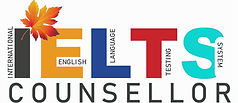Diploma in English for Medical Professionals

COMMUNICATE CONCISELY, PRECISELY, AND CONFIDENTLY
Introduction
The training program will invariably, cover the major areas based on the desired outcomes, with special focus on application of the learnt skills; This syllabus will be replicated or metamorphosed to suite the levels and professional needs of each individual participant and an additional module would be included to teach them the English they need for their professions.
Course Outline
Course Code | Duration | Individual (Rs.) | Corporate (Rs.) |
|---|---|---|---|
DE08 | 6 months | 12750 | 8750 |
Study Mode
Online / Offline / Distance Education
Nurses and medicos need to use multiple languages in their communication with patients. Hence, they must be proficient in use of English because even the slightest miscommunication could be potentially devastating for all. This diploma in English for nurses remarkably enhances their communicative skills at workplace. It is designed in accordance with the Common European Framework of Reference for Languages (CEFR), and can be taken individually or through corporate training.
Modules | Units | Credits | Hours |
|---|---|---|---|
7 | 14 | 1400 | 100 |
This course is based on the European English Proficiency Framework Level B2 to C2. Formation of Study-Groups and Batches : Participants are grouped into the following categories:
GROUP 1 : Beginners or Elementary
GROUP 2 : Pre-Intermediate
GROUP 3 : Intermediate
GROUP 4 : Upper-Intermediate
GROUP 5 : Advanced

Training Cycle
Participants would be tested for progress, and performance reviewed frequently A test based on multiple choice questions. – 30 minutes. A written examination to test the professional use of English. – 60 minutes. An interview to test the verbal communication in a meeting. – 15 minutes each A PowerPoint slide presentation to be presented in the company premises. A presentation in the classroom (online, to be recorded for assessment) – 5 to 7 minutes each. A brief project submission with their own feedback about their progress. (500 words)

Corporate Training
A custom-made training program that upgrades the English language skills to practically usable forms:
Following steps would be taken in case, the course is conducted as Corporate Training:
Step 1: Categorizing students into small groups according to their English levels.
Step 2: Improving their grammar and English usage skills.
Step 3: Collecting, introducing, and explaining the glossary of their professional fields through exercises.
Step 4: Applying the above in business communication such as telephoning, e-mailing, reporting, etc.
Step 5: Training all of them to create and deliver presentations professionally (includes PowerPoint usage.)
Step 6: Tracking progress through assignments and regular reviews.
Step 7: Reviewing final outcomes through a practical approach

Who needs the
Diploma in English for Medical Professionals
?
Medical professionals, pharmacists, technicians, nurses, and doctors benefit significantly from obtaining a Diploma in English due to several compelling reasons:
1. Global Communication: English serves as the international language of medicine. Proficiency in English allows medical professionals to connect and collaborate with practitioners and researchers worldwide. Whether presenting at international conferences, participating in research projects, or practicing in different countries, effective communication in English is essential.
2. Patient Care and Doctor-Patient Communication: Clear communication between doctors and patients is crucial for quality healthcare. Medical terms are often standardized in English, making it essential for accurate diagnosis, treatment, and patient education. Effective doctor-patient communication improves patient outcomes and overall satisfaction.
3. Collaboration and Research: By being proficient in English, medical professionals can actively engage in collaborative research, share knowledge, and contribute to advancements in healthcare. English proficiency facilitates participation in global medical communities and interdisciplinary teams.
4. Career Opportunities: Many medical journals, conferences, and educational resources are available in English. Proficiency in English opens doors to career advancement, academic pursuits, and specialized training. It also enhances employability in international settings.
5. Professional Networking: Networking with colleagues, attending medical conferences, and staying updated on medical advancements often involve English communication. A Diploma in English equips professionals with the skills needed to build meaningful connections within the medical community.
In short, mastering English isn’t just about language; it’s about unlocking opportunities, improving patient care, and contributing to global healthcare. Whether you’re diagnosing illnesses, conducting research, or collaborating with peers, effective English communication is a vital skill for medical professionals.

